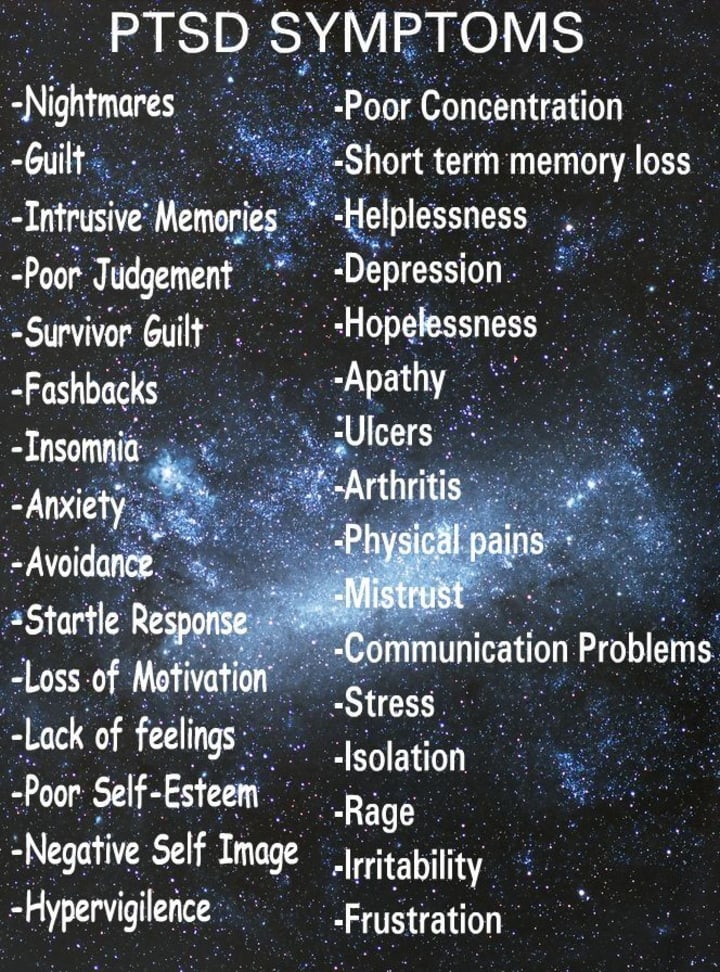
I left home, my comfort zone, to live and travel abroad a few years ago. While I do enjoy it, it can be a hassle as well. Especially when suffering from PTSD, and before you ask or assume, no, I have never been in a war or served in the Military. According to the National Institute of Mental Health, 7.7 million adults have Post-Traumatic Stress Disorder (PTSD). Some believe it is only associated with war veterans, events such as 9/11, or natural disasters. It is a common misconception that those are the only people who suffer from it; trauma has many faces, and other events can trigger PTSD symptoms, such as prolonged exposure to emotional and psychological abuse.
Too many people do not understand PTSD, and unfortunately, neither did a friend of two years. Not that explaining myself would have help; any time I did, they just wrote it off as me making excuses. It hurts losing a friend that I was close with because of this, but it hurts, even more, to continually justify the way I feel or why I do things when I don't even understand myself in some cases. Yes, I know it can sound irrational or stupid; my reasons, trust me, I know. But it doesn't change that during certain situations and points in my life, that is how I feel.
Among individuals who are victims of a severely traumatic experience, 60-80% will develop PTSD. An estimated 1 in 10 women develop PTSD in their lifetime, and women are twice as likely to develop PTSD as men. Traumatic events in someone's life, especially one that happens in childhood, can cause such a psychological shock that the mind is permanently altered because of it. It could then take YEARS before it is even recognized, causing a child's development, including their behavior and self-confidence, to be altered as they get older. For some people, like myself, who get misdiagnosed, that means YEARS without proper treatment or understanding what is wrong.

There is even a point in time where you feel as if no one understands. A trigger happens, and you are standing in a crowded place, yet you feel alone. Your heart starts to race; it feels as though it might explode or burst out of your chest; you can feel your pulse everywhere, on your neck, on your wrists, your temples, as if your blood itself wants to escape the flashback that is coming. You begin to feel hot, sweat, yet your hands are freezing, your mouth goes dry, and your vision seems to narrow. You can't speak because you are so afraid that it is happening again, your brain has you so convinced it is happening again, and then it shuts down, you break down. Sometimes you curl up in a ball and start to rock yourself or feel as though you are not really in your body, becoming dissociated ultimately. Some times you shake uncontrollable and cry, wishing it would just go away, that you can be normal. But you never are, and you can never talk about it. Because it seems no one quite understands.
People tell you to "get over it.. to calm down" as if you can control it. Why don't you just do this? Why don't you just take these meds? Yet the meds won't stop the triggers, and ANYTHING can be a trigger. Even when you are not having flashbacks, you are always on alert, on guard, worried, scared, wondering whether or not today will be a "Lost day" because some random thing in the world might set it off again. You begin to avoid things that might cause a trigger: people, places, situations, being too hot, loud noises, aggressive people. But you realize one day, you can't hide from the world out of fear of a trigger. You learn to live with and deal with the symptoms of PTSD.

You cut out the people in your life who cause the symptoms to worsen: Lovers, friends, even family. And it sucks, simply because PTSD is not understood by the populous. It is not something you "get over" or "move on" from. While there is much debate about it, studies have shown that PTSD may not be only an illness. It may be a psychological injury, an injury to the brain that you can't simply take a pill for, and poof, things are better.

The worst part, to me, is not the triggers; it's not the attacks, the stress, it's not even the emotions; I have learned to deal with it as they will pass eventually; it's having to justify myself and constantly explain my reactions over something that at times I have no control over—having to explain myself over and over because people don't believe that it's the real reason. It gets exhausting, and eventually, you have to say "Enough" because some people will never understand because they don't want to. In the end, you cut ties with people that don't want to understand and try to look forward to the light at the end of the tunnel. When it's your past that haunts your present, the future is where you look to in the end. Because what else is there?
About the Creator
CJ Weeks
A phoenix who is now free of her hospital bed and traveling. Her blog is full of posts and articles about food, events, stories, and things she gets up to.






Comments
There are no comments for this story
Be the first to respond and start the conversation.